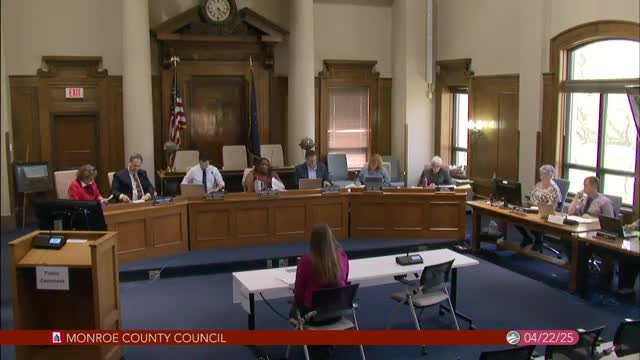Article not found
This article is no longer available. But don't worry—we've gathered other articles that discuss the same topic.
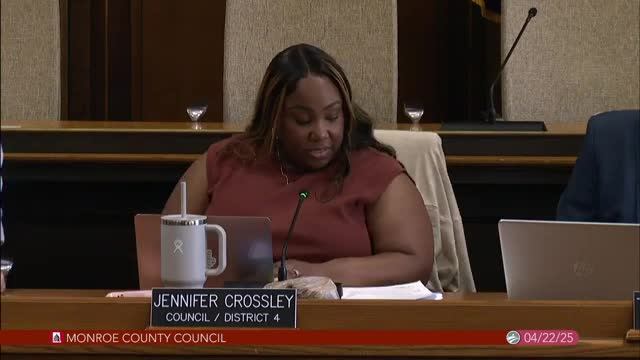
Votes at a glance: Monroe County Council actions from the April 22 meeting
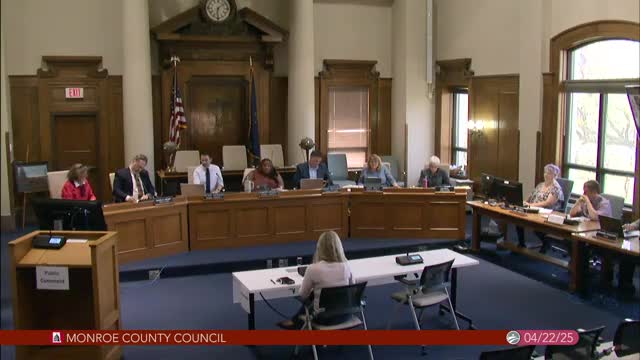
Council approves sheriff’s KSA pay-step request on first reading; second reading required
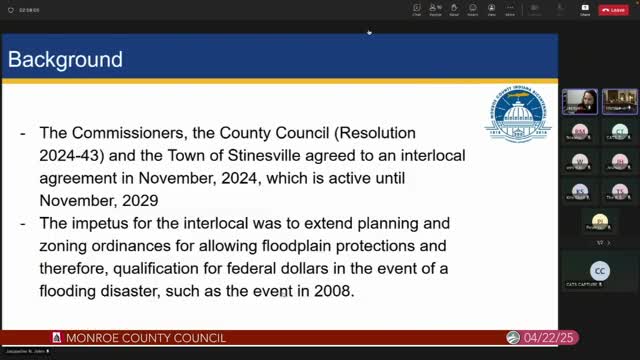
Council approves $15,000 appropriation to remove debris from two properties in Stinesville floodway
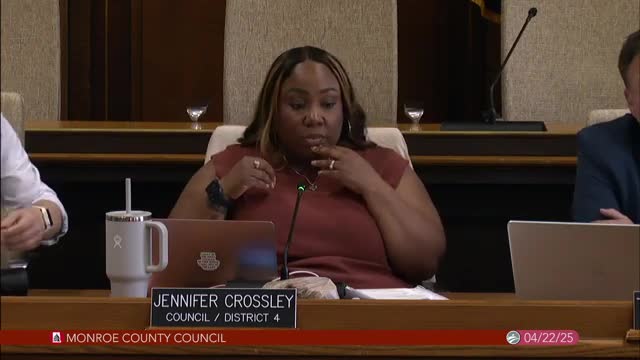
Monroe County vote-center committee recommends converting existing polling sites; officials outline equipment and staffing costs
